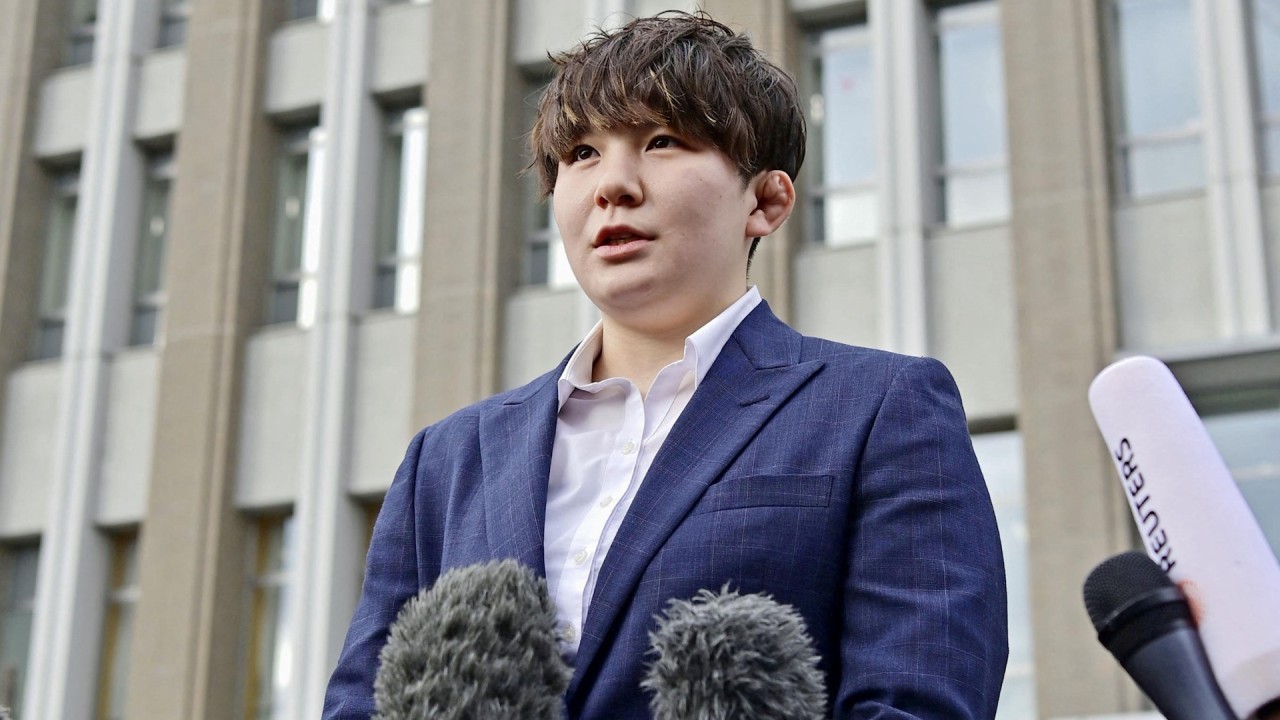
Japan oil firm chief sacked over misconduct, but is it ‘sign of fundamental change’ in corporate culture?
- Instead of firms cleaning up their act, some rights campaigners say such cases are only coming to light because whistle-blowers are making them public knowledge
- Japan has seen a spate of high-profile sexual harassment cases this year in organisations run by ‘grey men’ who lack an understanding of appropriate workplace behaviour
The recent firing of Takeshi Saito, the president of major Japanese oil refining company Eneos Holdings, for inappropriate behaviour towards a female employee has been praised by equality campaigners, but others are less optimistic that the case signals a significant change in the highest echelons of Japan’s corporate culture.
Instead of firms cleaning up their act, they say, such cases are only coming to light because whistle-blowers are making them public knowledge and top officials – in private companies, the Japanese military and even the government – know they have to be seen to be responding.
“I honestly do not see this as a sign of fundamental change,” said Noriko Hama, a professor of economics at Doshisha University in Kyoto. “I feel that companies and organisations are acting because they feel the pressure of society, not because of any internal change in attitudes.
“These companies are being forced to react by changes in society and they are almost trying to create credible alibis for these people,” she told This Week in Asia. “I don’t sense there is real change and I don’t trust them one inch.”
On Tuesday, the board of Eneos fired Saito after an investigation confirmed that he had acted inappropriately towards a female manager.
The board said the investigation had been launched in response to a complaint filed by a whistle-blower in late November claiming that Saito had been drinking at a social gathering and had “hugged” a woman. The investigation was conducted by external lawyers, who verified the allegations.
The complaint is even more embarrassing for the company given that it comes just over a year after Tsutomu Sugimori, the company’s former chief executive, stepped down following reports that he got drunk in a hostess bar and sexually harassed and injured a woman.
In a press conference to announce Saito’s departure, Eneos described his acts as “unacceptable” and said it would instruct him to return a portion of his pay.
“It is extremely regrettable that scandals like this have happened at our company for two years in a row,” Seiichiro Nishioka, an outside director, said. “We apologise for the trouble we have caused to our stakeholders.”
“I never thought anything like this would happen again,” Kyodo News quoted Nishioka as saying. “We will consider every option to drastically improve our governance.”

Saito admitted to the investigative team that he had misbehaved and blamed his actions on being drunk. He has also expressed shame for his actions, the company said, and for failing to control himself. Saito repeated those apologies and bowed deeply, in media interviews outside his home in Tokyo.
“Too many men, in particular older men in positions of power, have simply not learned that this sort of unwanted touching is inappropriate,” said Chisato Kitanaka, an associate professor of sociology at Hiroshima University.
“I was recently at a corporate event arranged to discuss sexual harassment and inappropriate actions in the workplace and an older man asked me to explain to him about the boundaries of inappropriate behaviour,” she said. “He did not know because he had never had it spelled out for him. He genuinely needed someone to explain it to him.”
Many Japanese businesses and organisations do have workshops designed to clarify acceptable and unacceptable behaviour in the work environment, but senior management members are often excused from such events, analysts say.
These older executives, who came of business age in the 1970s and 1980s – when regulations on equal rights, sex discrimination and other workplace issues were not a matter of concern – are most in need of instruction, they added.
“These attitudes were very common in the 1970s, and it took until the 2000s for the government to introduce meaningful legislation on actions in the workplace,” Kitanaka said.
“But I’m personally encouraged to hear that Eneos worked so quickly to make this decision,” she said. “They have done the right thing, they have done it publicly and I think other companies will look at this example and do the same thing in a similar situation. I applaud that.”
Hama of Doshisha University was far less upbeat.
“These sorts of attitudes are deep-rooted throughout these large companies and they have been there since they existed,” she said. “It is typical of organisations run by ‘grey men’ and we see it time after time.”
This year alone, she pointed out, numerous such examples have made headlines.
In April, the management of the Johnny & Associates talent agency finally admitted that late founder and music mogul Johnny Kitagawa had sexually abused hundreds of young boys.
In November, the local government in Saitama Prefecture announced that it was taking steps against sexual harassment after a female reporter was subjected to vulgar comments by male members of the city council.
In a 2021 report by the Cabinet Office, nearly 60 per cent of female members of local assemblies reported being harassed by colleagues or their supporters.
And while the scandal presently engulfing the ruling Liberal Democratic Party is financial rather than a question of harassment, Hama argues that it is yet another example of a sense of entitlement among senior male members of an organisation who feel they are effectively above the law.
“In these ‘communities’, this has become standard practice,” she said. “These people only talk to each other, so they are sharing the same beliefs and attitudes. It is not surprising that this is what they consider to be ‘normal’ behaviour.”
“They live in their own bubbles and I am not optimistic that there can be real change until there has been a generational change at the top.”


